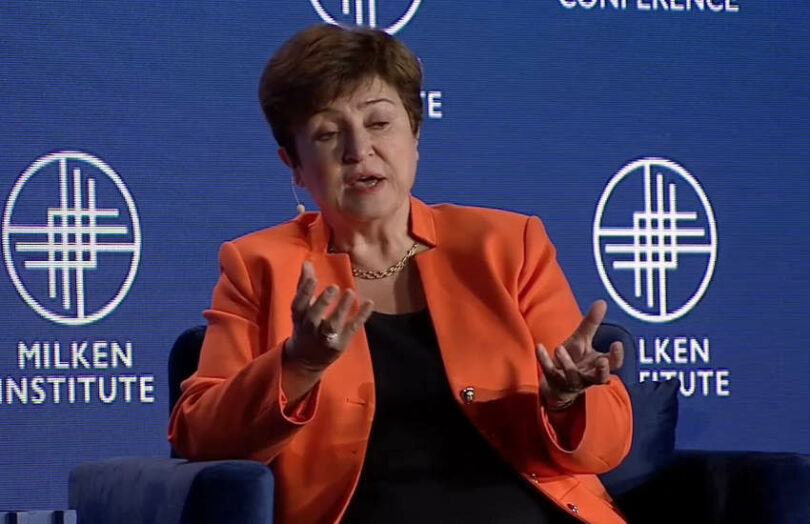Yesterday, Kristalina Georgieva, the Managing Director of the International Monetary Fund (IMF), shared her organization’s views regarding the future of central bank digital currencies (CBDCs). She said that while a wholesale option likely hides few surprises, the implications of retail CBDCs are still uncertain, talking at a Milken Institute event. The IMF is working with some fifty countries in this area and believes we will see “significant transformations” in the near future.
The future has arrived
CBDCs have received an “unprecedented” level of interest in recent years. Over one hundred countries are at some stage of development and dozens have approached the IMF for technical assistance, so the fund has had to increase its digital money capacity to cope with members’ greater engagement. “Before the pandemic, we used to say the future is digital, and with the pandemic, the future has arrived,” Ms Georgieva said.
Wholesale versus retail
The key takeaway from the Director’s comments concerned the different risks of a wholesale or a retail option. “We think wholesale CBDCs can be put in place with fairly little space for undesirable surprises, whereas retail CBDCs completely transform the financial system in a way that we don’t quite know what consequences it could bring.”
Indeed, several advanced economies have concluded that wholesale CBDCs have a stronger policy rationale and will likely involve fewer hurdles. Some have even admitted that they could issue a wholesale option without legislative approval, since it would not be directed to consumers and would effectively work as central bank money, which is already widely circulated.
On the other hand, retail CBDCs have attracted significant debate. Central bankers are considering rudimentary base-layer designs to dispel concerns about potential unintended consequences, but many argue that the risks still outweigh the benefits. For example, several US Republicans say retail CBDCs pose serious risks to financial privacy and economic freedoms. In Europe, some are worried that retail CBDCs could radically transform the financial system and spell danger for small banks.
Looking ahead
However, despite the ongoing debates, several countries will continue to explore CBDCs to secure a more stable financial system in a digitized world. The IMF expects greater engagement in the near future and sees major shifts lying ahead.






